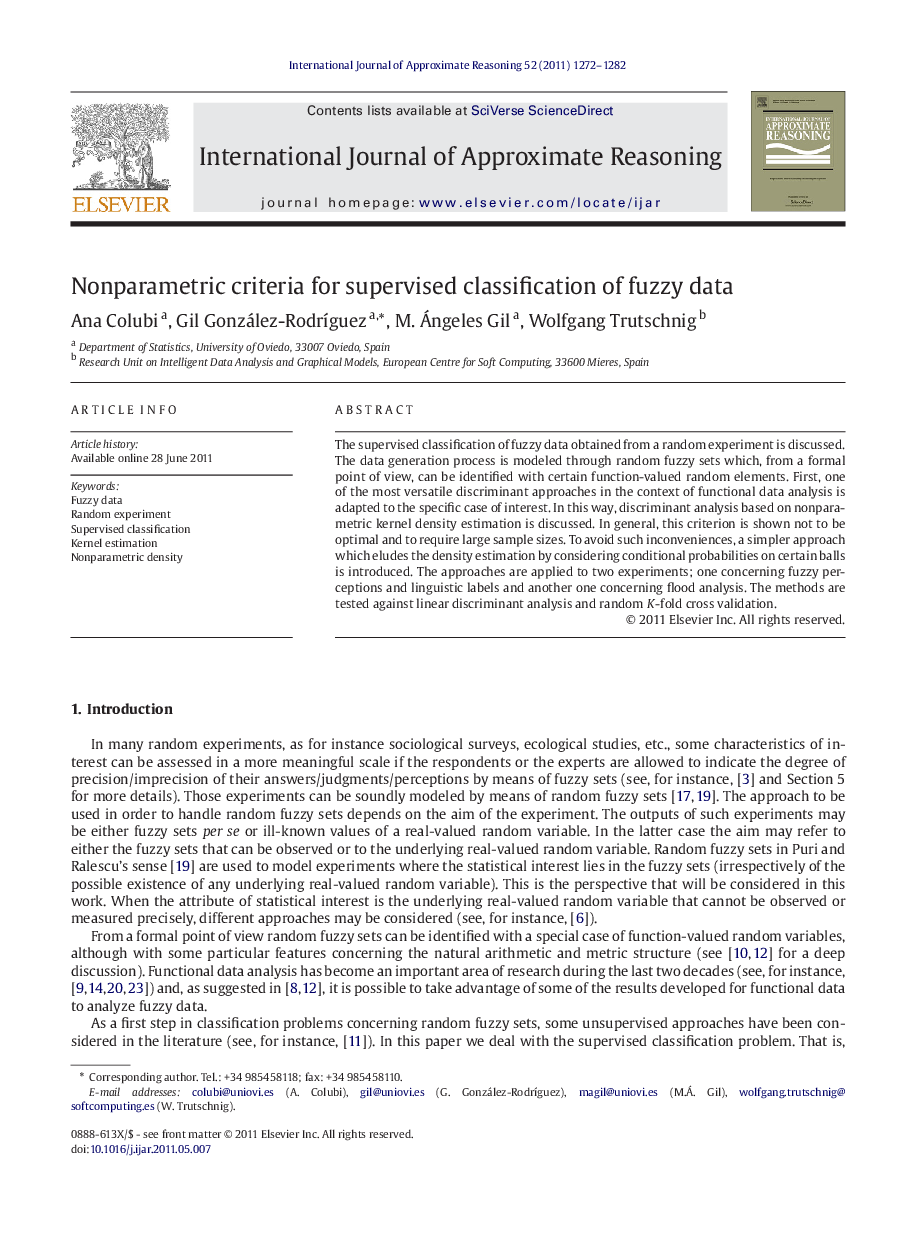| Article ID | Journal | Published Year | Pages | File Type |
|---|---|---|---|---|
| 398075 | International Journal of Approximate Reasoning | 2011 | 11 Pages |
The supervised classification of fuzzy data obtained from a random experiment is discussed. The data generation process is modelled through random fuzzy sets which, from a formal point of view, can be identified with certain function-valued random elements. First, one of the most versatile discriminant approaches in the context of functional data analysis is adapted to the specific case of interest. In this way, discriminant analysis based on nonparametric kernel density estimation is discussed. In general, this criterion is shown not to be optimal and to require large sample sizes. To avoid such inconveniences, a simpler approach which eludes the density estimation by considering conditional probabilities on certain balls is introduced. The approaches are applied to two experiments; one concerning fuzzy perceptions and linguistic labels and another one concerning flood analysis. The methods are tested against linear discriminant analysis and random K-fold cross validation.
► The supervised classification of fuzzy data obtained from a random experiment is discussed. ► The data generation process is modelled through random fuzzy sets identified with function-valued random elements. ► Discriminant analysis based on nonparametric kernel density estimation for functional data is adapted to the specific case. ► Conditional probabilities on certain balls are used for introduce an alternative simple criterium. ► The approaches are applied to two experiments: fuzzy perceptions and linguistic labels and flood analysis.
